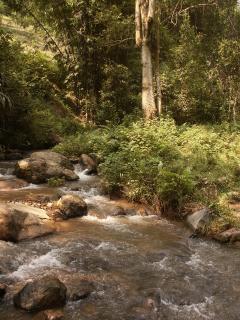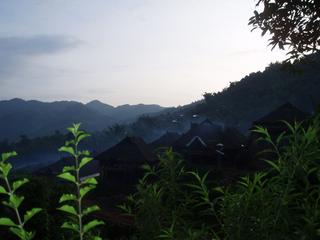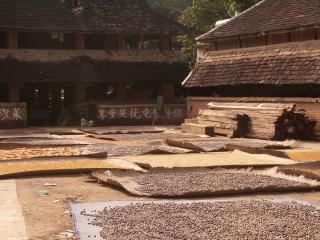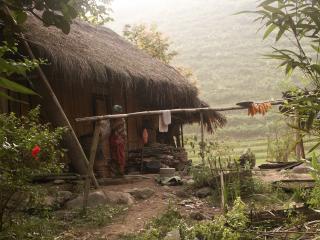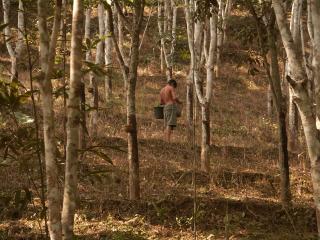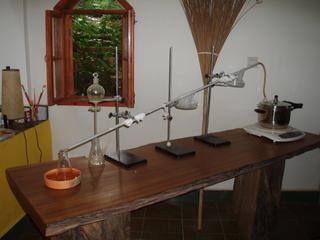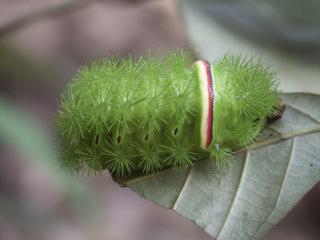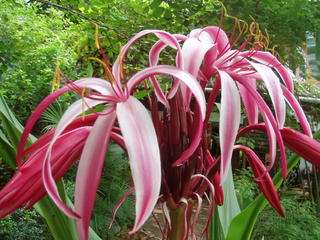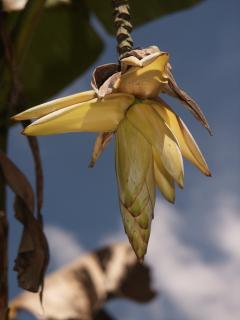The Story of the "Ylang-ylang Village"
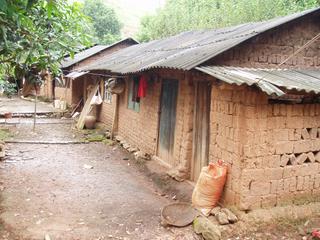
Ten years ago an entrepreneur arrives in Jinghong and decides to plant around 50 hectares of ylang ylang trees. The climate is ideal for growing ylang ylang, the world market demand for ylang oil is very high, so this business promises to be very prosperous. So in 1995, the trees from the rainforest on a few hills around Jinghong are cut down. Thirty six families (who anyway had lost their land) are displaced from the Simao prefecture (another prefecture in Xishuangbanna, about 8 hour-drive from Xishuangbanna, where labor costs are much lower than in Xishuangbanna). These families are placed in a newly constructed village at the foot of the hills where ylang trees are to be planted. This is the village I visited. That's why it is called "ylang-ylang village," because before the start of the production, no village existed in this area.

Everything in the village was built towards the production of the ylang ylang oil: the distillery, close to an attic where the freshly picked flowers could be placed while waiting to be distilled.
To plant the trees, harvest the flowers and then distill them, the farmers were paid around 300 yuan a month. As soon as the trees were tall enough for the flowers to be harvested and the oil to be produced (around four years ago), the entrepreneur stopped to pay them. He was facing financial difficulties as, even though the oil was of good quality, none of the international fragrance houses wanted to buy it. As a result, he could not pay back his loan to the bank. Soon, the land was sold to another entrepreneur. The farmers that had first been displaced, and who then planted the ylang trees had to cut them down. These farmers had nowhere to go, no means of subsistence and were left to the mercy of the first entrepreneur that came up.
 Where the rudimentary distills used to be.
Where the rudimentary distills used to be.
This time, the entrepreneur wanted to plant rubber trees. So the hill just outside of Jinghong, which was once covered with a lush rainforest is now covered with rubber tree seedlings.... The industry might go on for another 30 maybe 40 years, after which, the entrepreneur may face the same problems the ylang entrepreneur faced. And once again, the farmers may have to cut down the rubber trees and probably leave the "ylang soon to become rubber village" because the soil will have been completely depleted of its nutrients from the rubber tree monoculture.
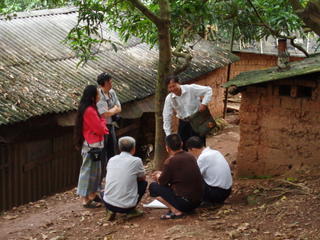 The new entrepreneur with the leader of the village planning the new rubber plantation.
The new entrepreneur with the leader of the village planning the new rubber plantation.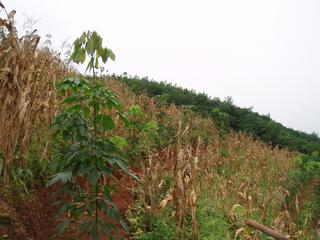 Rubber tree seedlings in a corn field, where the ylang ylang trees once stood.
Rubber tree seedlings in a corn field, where the ylang ylang trees once stood.

